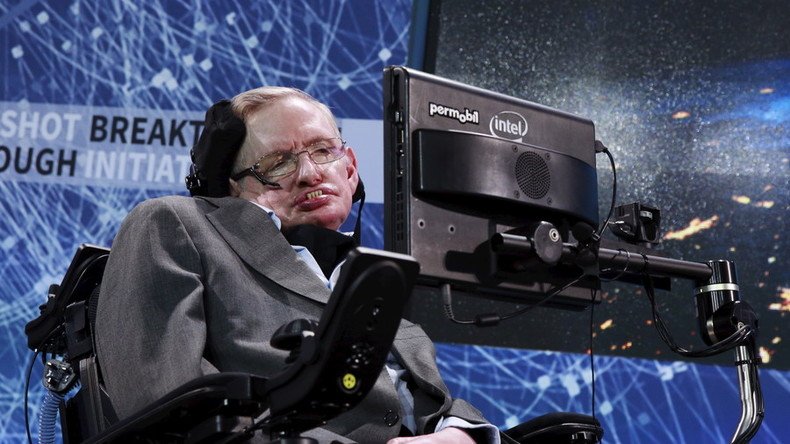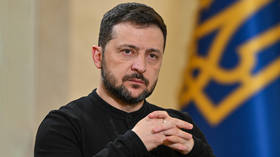Humans will turn Earth into ‘sizzling ball of fire’ by 2600, Stephen Hawking warns

World renowned physicist Stephen Hawking has offered another apocalyptic prediction for Earth – this time warning that the planet will become a “sizzling ball of fire” in less than 600 years.
Hawking made the grim forecast via videolink to the Tencent WE Summit in Beijing, declaring humans will have to “boldly go where no one has gone before,” if they want humankind to survive for another million years.
The planet will be overcrowded by 2600 and increased power consumption will turn Earth into a sizzling fireball, according to the Cambridge mastermind.
‘Humanity at point of no return, in danger of self-destructing’ – Stephen Hawking https://t.co/0T6v4HudNbpic.twitter.com/vD5N8ZlfB1
— RT (@RT_com) November 4, 2017
Hawking offered some hope, however, via his Breakthrough Starshot project. The $100m research program backed by Russian Internet billionaire Yuri Milner and Facebook CEO Mark Zuckerberg aims to reach the closest star outside of our solar system, in the hope that a livable planet might be orbiting it.
READ MORE: Hawking & Milner to send interstellar craft to Alpha Centauri 'within a generation'
The intention is to send tiny spaceships propelled by beams of light to Alpha Centauri – one of the closest star systems to ours, 4.3 light-years away. "Such a system could reach Mars in less than an hour, or reach Pluto in days, pass Voyager in under a week and reach Alpha Centauri in just over 20 years," Hawking said.
“Maybe if all goes well, sometime a little after the middle of the century, we’ll have our first picture of another planet that may be life-bearing orbiting the nearest star,” said Pete Worden, Breakthrough Starshot’s director and former head at NASA’s Ames Research Center who also spoke at the China summit.
READ MORE: Stephen Hawking's PhD thesis posted online, crashes Cambridge website
Hawking also reiterated his AI fears this week. He told the Web Summit in Lisbon Monday that it may be the “worst event in the history of our civilisation,” and could conceivable destroy mankind.













